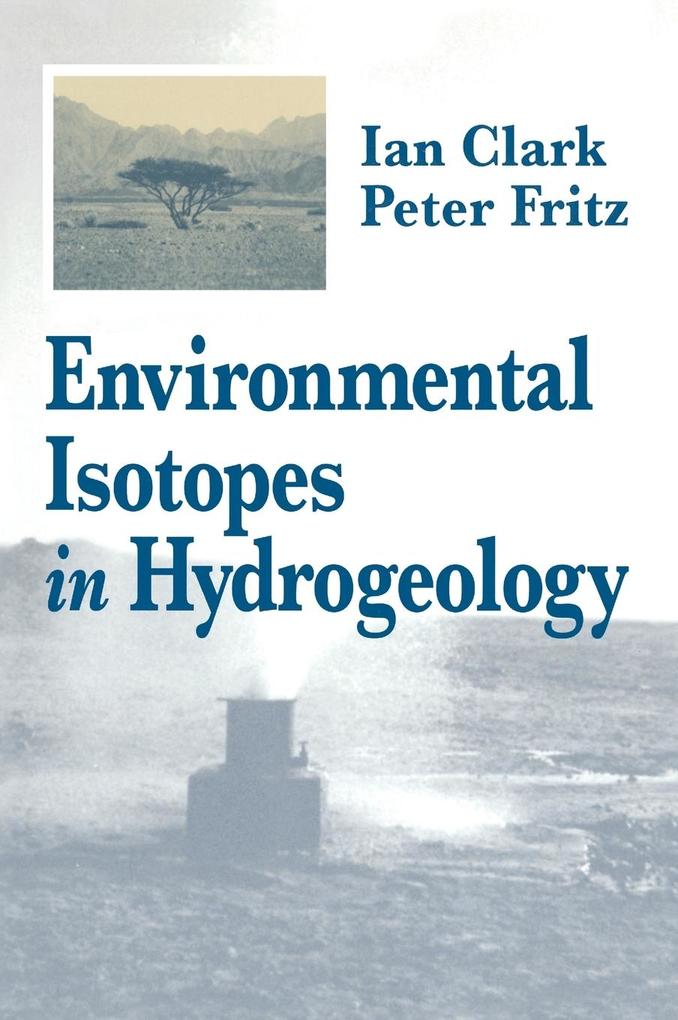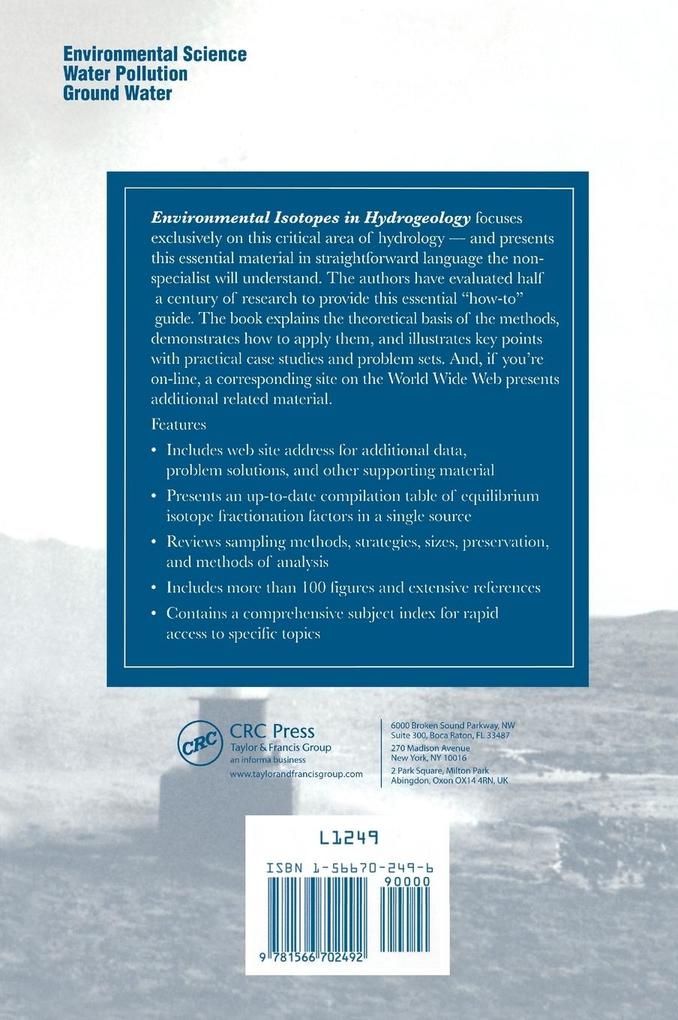
Zustellung: Mi, 13.08. - Sa, 16.08.
Versand in 7 Tagen
VersandkostenfreiBestellen & in Filiale abholen:
Written in terms that even the non-specialist will understand, Environmental Isotopes in Hydrogeology focuses exclusively on this critical area of hydrogeology. The authors have evaluated half a century of research to provide this how-to guide. The book explains the theoretical basis of the methods, demonstrates how to apply them, and illustrates key points with practical case studies and problem sets. It includes more than 100 figures, extensive references, and a comprehensive subject index for rapid access to specific topics. A corresponding Web site (http://www. science. uottawa. ca/~eih) presents additional related material.
Groundwater is an increasingly important resource to human populations around the world, and the study and protection of groundwater is an essential part of hydrogeology - the subset of hydrology that concentrates on the subsurface. Environmental isotopes, naturally occurring nuclides in water and solutes, have become fundamental tools for tracing the recharge, history, and contamination of groundwater.
Inhaltsverzeichnis
CHAPTER 1: THE ENVIRONMENTAL ISOTOPES, CHAPTER 2: TRACING THE HYDROLOGICAL CYCLE, CHAPTER 3: PRECIPITATION, CHAPTER 4: GROUNDWATER, CHAPTER 5: TRACING THE CARBON CYCLE, CHAPTER 6: GROUNDWATER QUALITY, CHAPTER 7: IDENTIFYING AND DATING MODERN GROUNDWATERS, CHAPTER 8: AGE DATING OLD GROUNDWATERS, CHAPTER 9: WATER - ROCK INTERACTION, CHAPTER 10: FIELD METHODS FOR SAMPLING, REFERENCES, SUBJECT INDEX
Produktdetails
Erscheinungsdatum
23. Juli 1997
Sprache
englisch
Untertitel
10 SW-Fotos, 27 Tabellen.
Sprache: Englisch.
Seitenanzahl
344
Autor/Autorin
Ian D. Clark, Peter Fritz
Illustrationen
10 SW-Fotos, 27 Tabellen
Verlag/Hersteller
Produktart
gebunden
Abbildungen
10 SW-Fotos, 27 Tabellen
Gewicht
843 g
Größe (L/B/H)
260/183/23 mm
ISBN
9781566702492
Entdecken Sie mehr
Pressestimmen
". . . easily the best and most up-to-date book this reviewer has read on the subject. . . The first chapter provides an excellent introduction, while the final chapter offers a good practical discussion often missing in other books of a similar nature. . . Given the reasonable price for this book, the quality and quantity of information contained, and its timeliness, it is highly recommended."
-Choice
-Choice
Bewertungen
0 Bewertungen
Es wurden noch keine Bewertungen abgegeben. Schreiben Sie die erste Bewertung zu "Environmental Isotopes in Hydrogeology" und helfen Sie damit anderen bei der Kaufentscheidung.











